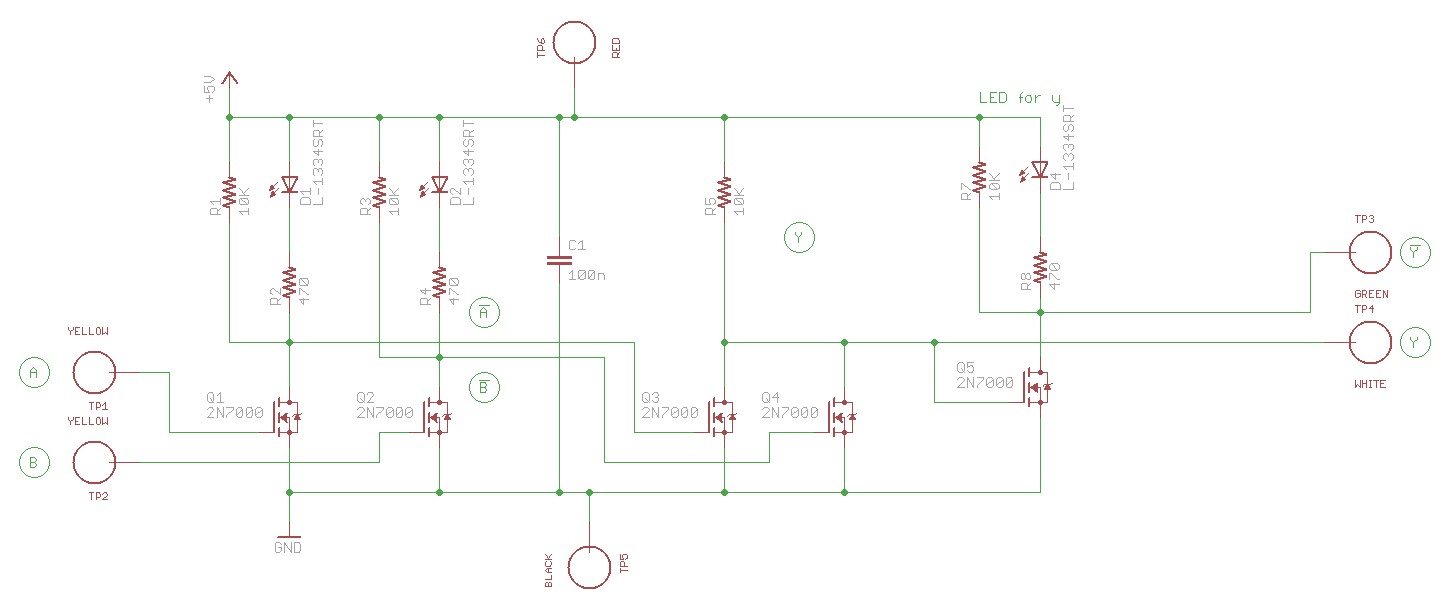 Transistor Efficiency
Transistor Efficiency
The transistor efficiency of the Megaprocessor is not great. Given that I'm building it by hand you might expect me to have done better. There's various reasons why we are where we are. Some good, some bad.
First let's look at the simple gates, for example the 2 input AND gate.

This 2 input AND gate is using 5 transistors. But only 2 of them (Q3, Q4) are needed to implement the logic function, the other 3 are being used to drive the LEDs. We can argue about Q5 which also acts as an inverter to make the gate an AND rather than NAND. My desire to put LEDs on everything has essentially doubled the number of transistors needed.
Actually there are more choices involved.
If I had used negative logic (so 0V represents logic 1 and 5V logic 0) then you wouldn't need the driver transistors, the output inverter transistor of a gate would be able to drive its output LED and the LEDs on all the inputs it was connected to. (Though there might be consequences for maximum fanout). There is no good reason not to use negative logic, its just as valid a representation of logic as positive. But no, I couldn't bring myself to do that. For this project it just seems that it should be positive logic as that is the more natural way and in terms of making things understandable that is important.
Another thing I could have done is make each gate output port have two signals; its logic value, and the inverse for driving the LED. I do do this on the bigger boards (such as the adder) where I've integrated several gates onto the one circuit (so if you look at the adder you will see that its AND and OR gates use fewer transistors than the standalone gates do). But this would have doubled the amount of interconnections I would need to make between boards which would be a lot of work and error prone, lots of chances for transposing the connections. A possible way round that would have been to use a 2 core standard connector/cable such as used for power supplies. If you were to buy the cables by the thousand you should be able to get quite a good price, a few tens of pence maybe.
I'm also sure my multiplexors could use a lot fewer transistors, possibly half. My first attempt at a multiplexor used just one transistor to select/deselect n bits. But it ran into problems described here. I'm sure it was the right approach and could be made to work but after my troubles I went for much more of a sledgehammer approach where I use n transistors to select/deselect n bits. Having a design that worked I stuck with it rather than risk further disappointment.
The RAM cell likewise should be about half the size it is. This is described here.
So in principle I should have been able to do the Megaprocessor with half the number of transistors I have used without really compromising either its function or its LED quota.
 |
 |
© 2014-2016 James Newman.
